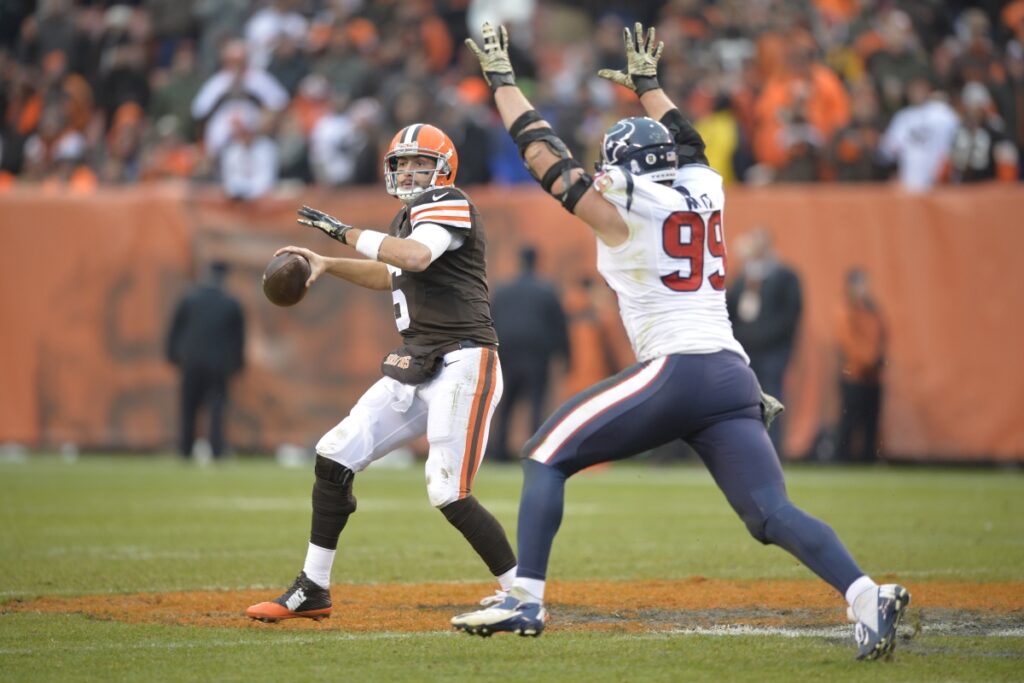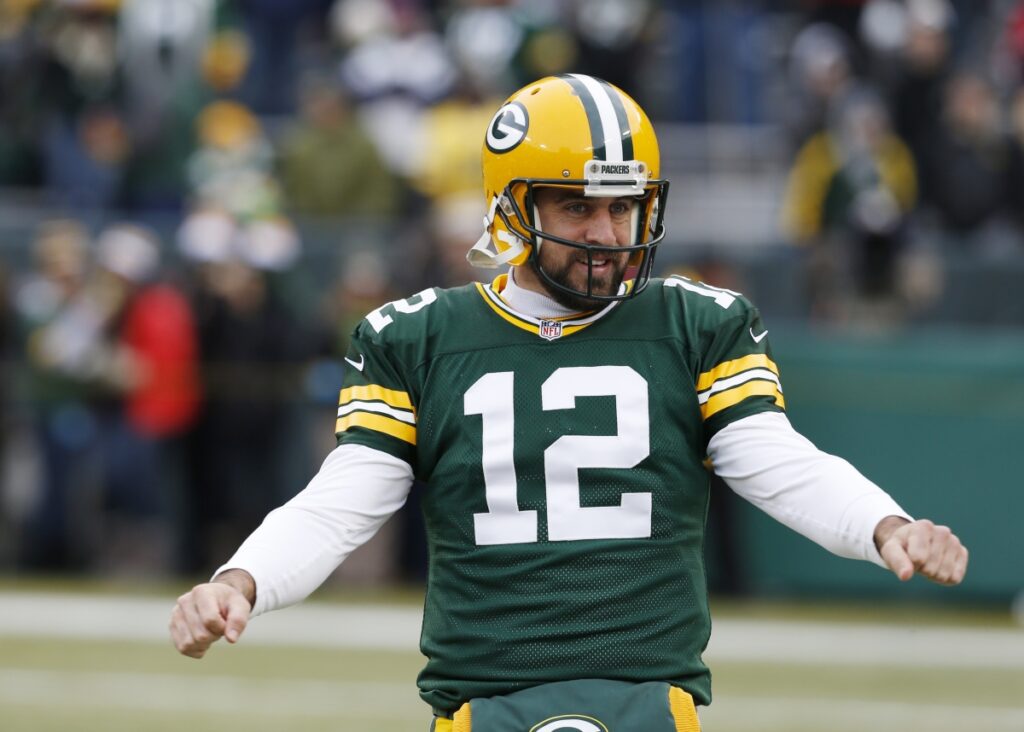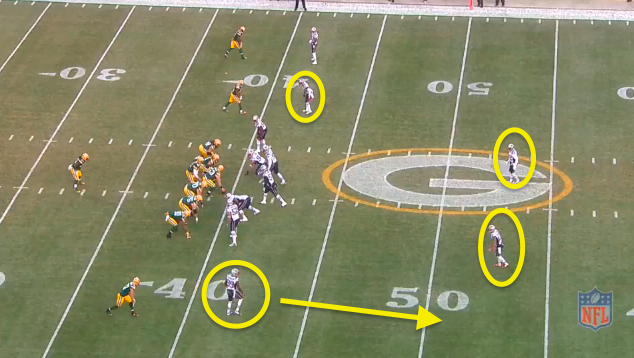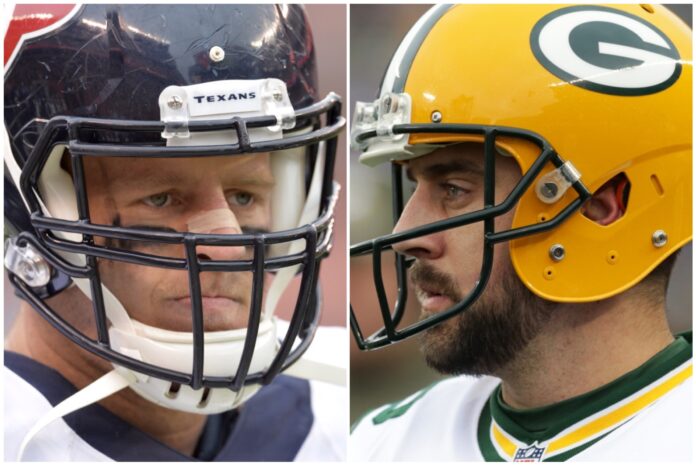Houston Texans wide receiver DeAndre Hopkins recently voiced his opinion, advocating for teammate J.J. Watt as a deserving candidate for the NFL Most Valuable Player award over Green Bay quarterback Aaron Rodgers.
He emphasized, “Aaron Rodgers cannot both sack quarterbacks and contribute by catching and throwing touchdowns.”
According to Hopkins, Watt’s multifaceted skills set him apart, and he pondered, “When was the last instance of witnessing a defensive end amass as many touchdowns or execute remarkable catches as he has?”
Hopkins’ perspective gains credence when one contemplates Watt’s extraordinary performance as a one-person powerhouse.
Despite frequently facing double- and triple-team defenses, Watt consistently showcased his exceptional productivity and sustained high-level play.
He compiled an impressive 11.5 sacks, forced three fumbles, and even managed to secure an interception for a touchdown.
Furthermore, Watt’s versatility extended to goal-line situations, where he seamlessly transitioned into roles as a tight end or wide receiver, contributing three touchdowns. His contributions as a renaissance player are evident, making him a formidable force.
With four touchdowns, Watt trailed only slightly behind Pro Bowl wide receivers like Calvin Johnson of the Detroit Lions and A.J. Green of the Cincinnati Bengals, who both had five touchdowns.

Each week, Watt’s performance exerted a profound impact on the Texans’ overall results. The player who bore the heaviest responsibility for the team’s success embodied the essence of an MVP, and Watt undeniably embodied this description.
However, a difference of opinion emerged as an opposing viewpoint surfaced.
Even though Watt displayed an exceptional level of play, the inherent limitations of defensive linemen constrained their influence, even when they occasionally featured in scoring situations.
The one position that, by its inherent nature, shouldered the paramount responsibility for a team’s prosperity was the quarterback.
Quarterbacks were central in making critical decisions that ultimately shaped a franchise’s fate.
When a quarterback performed at a championship-caliber level, such as Rodgers, it became inconceivable to bestow the MVP honor upon any other position, even if a defensive lineman like Watt played at an exceptionally high level.

When scrutinizing the Packers’ triumphant journey, one could discern the indelible imprint of Aaron Rodgers on both the offensive and defensive facets of the team.
His level of proficiency proved nothing short of historical, tallying an impressive 32 touchdowns against a mere three interceptions, resulting in a touchdown-to-interception ratio exceeding 10-to-1.
His efficiency rating soared to 118, outshining even the likes of legendary quarterbacks like Peyton Manning and Tom Brady in terms of offensive prowess for the season.
This exceptional performance found its roots in Rodgers’ impeccable decision-making, his profound mastery of the team’s offensive strategies, and his seamless rapport with the receiving corps.
Rodgers showcased remarkable agility and athleticism, enabling him to extend plays from the pocket while possessing an arm of both precision and strength, adept at compensating for any misreads or errors.
Thanks to Rodgers, the Packer running game, led by Eddie Lacy, found itself with more open lanes, primarily due to the constant threat posed by Rodgers, which demanded heightened defensive attention.

In response, we are opposing defenses swiftly adapted by deploying robust pass defenses to counter Rodgers’ prowess.
His rapid release proved a boon for the offensive line, facilitating their task. Furthermore, owing to the Green Bay offense’s tendency to establish substantial early leads, the necessity for a formidable run defense dwindled.
Starting from their Week 6 showdown against the Miami Dolphins, the Packers dominated the first quarter, amassing a remarkable 79-13 scoring advantage.
This early accumulation of points often placed their opponents in a catch-up predicament, leading to a more pass-heavy approach and a reduced emphasis on running.
Essentially, Rodgers served as Green Bay’s most effective run defense, given his substantial impact on both the offensive and defensive lines. It was arguable that no other player in the league could make a more compelling case for the MVP title.
Though Watt undeniably enjoyed an exceptional year, as the season reached its three-quarter mark, there remained little doubt regarding the frontrunner for the MVP award.
This was primarily due to Rodgers’ unparalleled responsibility for his team’s triumph, surpassing any other player in the league.
Should the season continue along its current trajectory for the final four weeks, it appeared increasingly likely that this year’s MVP accolade would once again find its way into Rodgers’ illustrious career, marking his second such honor.

